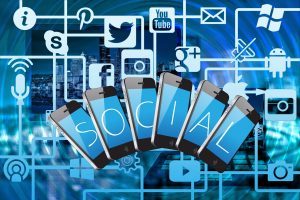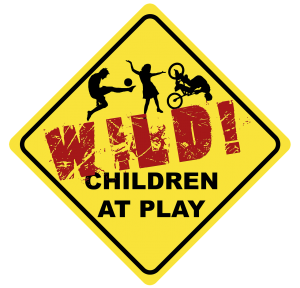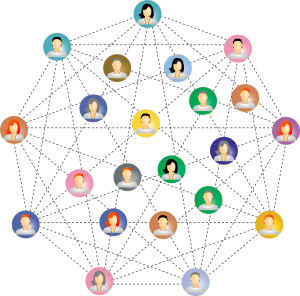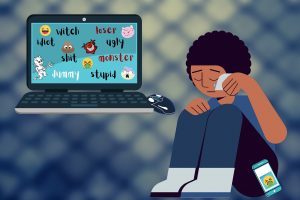The Social Dilemma – Week 8

It has been sometime since I had originally watched The Social Dilemma on Netflix! Before I set out to watch it again, I tried to remember any sort of specifics regarding the show. I couldn’t remember many specifics, but I do recall how I felt after watching it…. OVERWHELMED, DEFEATED and GUILTY. I felt overwhelmed with finally understanding how these social media apps work. I felt defeated and guilty as I am a frequent user of these apps and find it extremely difficult to cut the cord with them. I do feel that the Web 2.0 has impacted our lives in some positive aspects, but I feel that it has affected us more in a negative manner.
The Social Dilemma reinforced my thoughts on the negative aspects in which our lives have been affected. My key takeaways are:
Society’s Addiction to Social Media

In some capacity or another, society is connected and exposed to social media more than we like to admit, but have a hard time admitting that fact and as a result refrain from trying to find a solution to limit our exposure to social media. I personally cannot remember a time when I’ve been able to go week, let alone a day without exposure to an obscene amount of social media time. Most of us see how these apps can affect our physical and mental well be and we know that we should limit our time on these apps, but have an extremely difficult time doing this. In the article 5 Key Takeaways From The Social Dilemma Documentary on Netflix which was written by Nnaemeka Ugochukwu, they outline that the more frequently we engage with social media apps the more likely we are to grapple with poor mental health, anxiety, and depression. Stemming from the unrealistic comparisons that are created through these apps.
Social Media Designed to be ADDICTIVE

This was one aspect of the documentary that made me cringe the most. These companies are designing apps that make it extremely difficult for its users to step away. Human beings are constantly searching for that interaction that makes them feel alive. In come the comparisons that the use of social media can release a hit of dopamine directly into our system, something some users are searching for and addicted to. These hits come from watching post collect likes and shares. I am guilty as charged. I have made posts on these apps and have been addicted to checking to see how many likes I have gotten. This has made me feel good for a very small amount of time, but it seems each time I post, I do the same thing. Another aspect we need to consider when talking about social media addiction is FOMO! You do not want to be the last one to find out about something major, or completely miss a huge announcement, with that said we are constantly on our devices ensuring that does not happen.
Governments are doing squats to help us.

One major takeaway that I did remember from my first viewing of the documentary, was how frustrating it was to find out how little our governments are doing in protecting us against these big companies like FaceBook. There are no limits to the amount of data that these companies are able to attain from its users, something that makes me feel very exploited! Not only is there no limit to the amount of data they can cultivate, but also, these companies seem to be able to do with this data whatever they wish. Most of those government players who are in power to make these decisions to protect users likely do not understand enough to make decisions that are not political in nature.
Kids are at risk

The users that are most at risk are the younger generations, the ones that have not developed proper decision making skills or digital citizenship skills yet. Many of these younger generational users are digital natives who have been born into a time where they do not know any difference. As a result they see these apps with a different lens, usually seeing the obscene amount of time or the unrealistic comparisons of a normal part of life.
With most negatives, comes some positives and I feel that this is the case with the Web 2.0 era. Although currently, more of the negative sides of things are being discussed it has done some good things for our lives. Some of the ways that this era has positively affected our daily lives that I have seen.
Connection
The power of these apps to build connections is unprecedented. Not only are we able to stay connected with those that are important to us that may live afar, but they also enable us to connect to anyone in the world.
Variety and Ease of Usage
There is a wide variety of apps out there for people to find one that they really like to use. FaceBook, Twitter and Instagram are 3 of my go to apps, but that is going to be different for everyone. I feel that I don’t know the magnitude of apps that are out there and when I listen to my students talk on a daily basis, there are usually 1 or 2 apps that they mention that I have never heard of. Most of these apps are user friendly in the sense that they are easy to use. Many are designed this way as their sole purpose is to capture our attention and with an app that is difficult to use, many users will focus their attention elsewhere.
Web 2.0 and Schools
Knowledge Building

With the power of Web 2.0, learners are now an active participant in their knowledge building. They are able to connect with people all over the world, including experts in fields of study. For example, Twitter has enabled many students in my school to reach out to experts to help with projects like Science Fair and Heritage Fair. Many of these experts are very willing to meet virtually with groups of students to talk about their topics! Web 2.0 has also given learners access to so much knowledge. Most of these students are carrying a device in their pockets that gives them immediate access to be able to research.
Learning Communities

Learning communities is another byproduct of the Web 2.0 era for both teachers and students. Teachers are able to join through LMS like Google Classroom or Edsby professional development groups of like minded educators. Students are able to collaborate through the use of Google Tools for Education and Google Classroom.
Cyberbullying
Of course the elephant in the room when it comes to Web 2.0 is the ease of cyberbullying. This will always be the case when we are working in a digital age and when the technology booms shows no sign of slowing down. Many

students think that the web is a safe place to mistreat others and that there won’t be any repercussions to their actions. This issue makes it abundantly clear that a responsibility of educators is to expose their students to some sort of Digital or Media Literacy instruction as school may be the only place that these students are going to be exposed to this type of guidance.
I apologize for the brief post, as this week has been a crazy one!
Cheers,
Bret
2 thoughts on “The Social Dilemma – Week 8”
Bret, you have shared great points in your post and also made connections with students, schools, and society. I agree that social media apps are showing positive and negative impacts on everyone. While talking about the government, they have never shown much interest in improving the situation. I have seen in my country India, people suffer during a pandemic, and children were not able to take classes because of a lack of devices, or internet connection. The government announced online classes but hoe to conduct and cater to the need of society was the big question.
I agree Bret, I too feel guilty after rewatching the documentary. I am definitely “addicted” to my phone and these social media platforms. It is a hard habit to break, but as you said we must remeber that they are designed this way. I too wish that the government did more to control/protect our information. It makes sense why the school boards have lists of programs and applications that we can/can not use based off many things (including sercurity, the data that is saved, and how it is shared/stored).